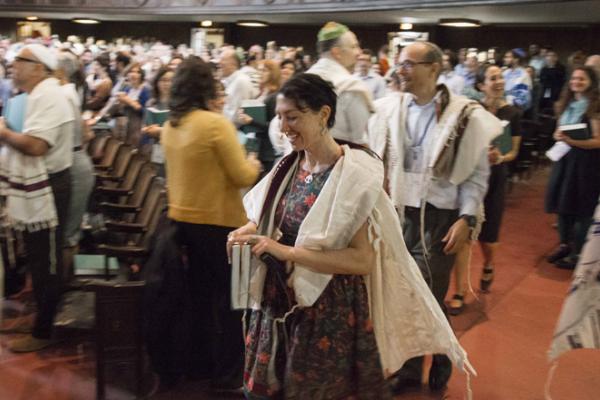Apr 8, 2015
At a synagogue in Charleston, S.C., more than 20 years ago, teenager Rachel Nussbaum began wrapping tefillin — two black boxes attached to leather straps that Jewish men wear as they pray.
To the older Jewish men gathered for morning prayers, the sight of a woman decked out like a man at prayer was shocking. Many didn’t know what to make of Nussbaum’s brazen willingness to break with tradition.
Now 38, and a rabbi, Nussbaum leads The Kavana Cooperative, a growing Jewish prayer community in Seattle that has much in common with a synagogue but doesn’t call itself one.
Like the tefillin-wrapping teenage Nussbaum, Kavana prides itself on a reputation for doing Judaism its own way.
Read the Full Article

Already a subscriber? Login
